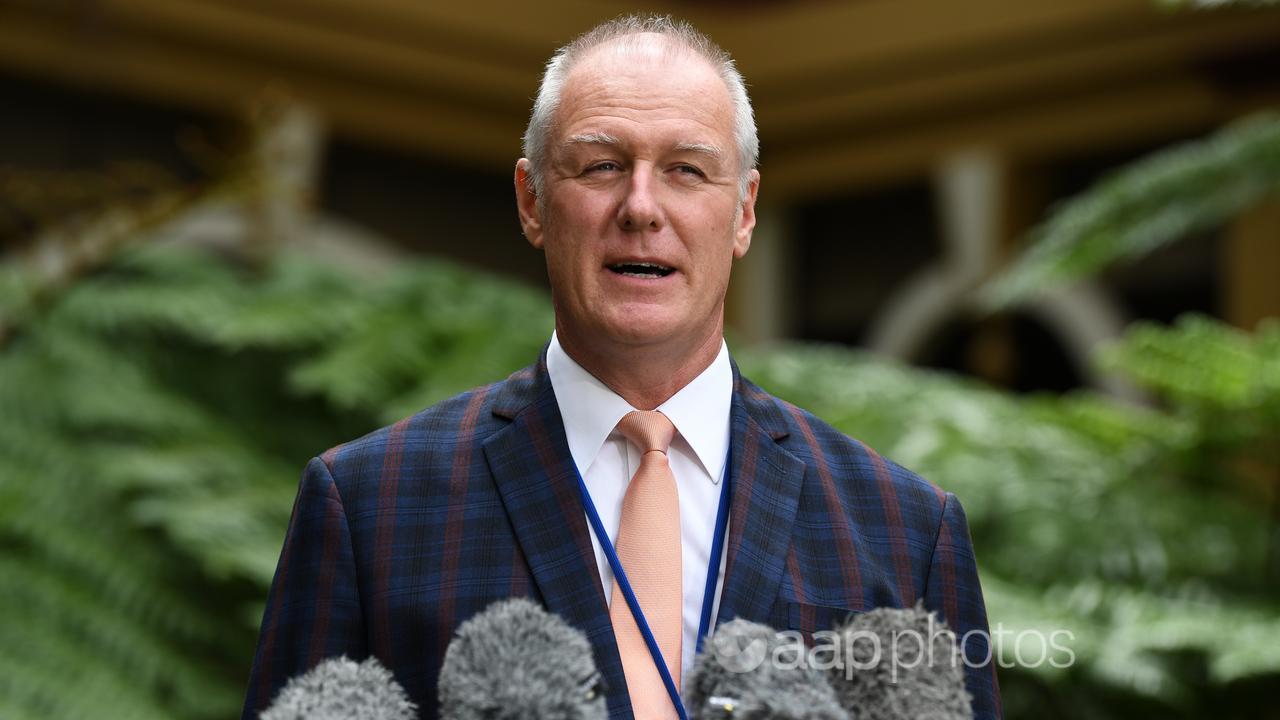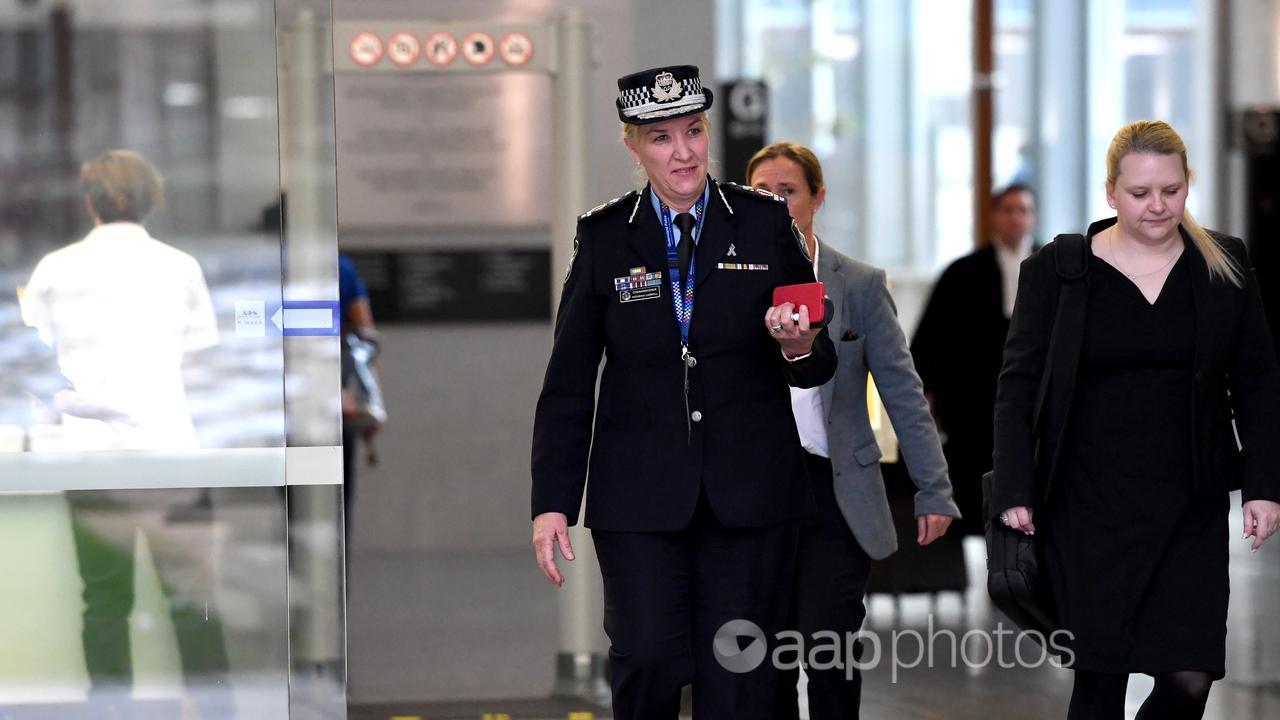A ruling by Queensland’s highest court on vaccine mandates for the state’s police and ambulance service workers has sparked a spate of misleading claims.
Some social media users are claiming the Supreme Court ruling was made as the mandates breached human rights (example here). Others have said the decision applies to all vaccine mandates (example here).
But the court’s ruling (see here), which related explicitly to COVID-19 mandates for Queensland Police Service (QPS) and Queensland Ambulance Service (QAS) staff, wasn’t based on whether the directives themselves limited human rights.
Instead, the judgment was on procedural deficiencies in the decision-making process leading to the mandates.
The case (summary here) was brought in 2022 by dozens of police and paramedics who refused directives to have the jab.

They applied for a judicial review, where a court assesses if a decision was made lawfully.
That’s different to a merits review, where the court assesses if a decision itself is right or wrong.
Experts told AAP FactCheck that different sources of legal power were relied upon to impose the QPS and QAS mandates, so the legal basis of the court’s decision was different in each case.
In the QPS case, Justice Glenn Martin focused on whether then-Police Commissioner Katarina Carroll, who stepped down from her role in March, followed the required process for imposing a mandate, particularly in regard to the Qld Human Rights Act (HRA).
Professor Peter Billings, an administrative and human rights law expert at the University of Queensland, told AAP FactCheck that the commissioner had procedural obligations under section 58 of the HRA to give proper consideration to human rights before making a decision that might impact human rights.
This includes considering competing private and public interests and whether alternative measures could have less impact.
“That’s the process that’s warranted and that is not the process that the Police Commissioner engaged in,” Prof Billings said.
This resulted in Justice Martin declaring the QPS mandate “unlawful”.
However, Prof Billings said claims that the mandates breached human rights “is misconstruing the nature of the judgement”.
“It is a procedural flaw that the judge has identified, which is a separate question from the substantive issue of whether the directions limited, in an unjustifiable way, people’s human rights,” he added.

Fellow University of Queensland law professor, Anthony Cassimatis, agreed.
“The unlawfulness found by the Supreme Court did not relate to any finding of failure of the decision-makers to act compatibly with substantive human rights obligations under the Human Rights Act,” he told AAP FactCheck in an email.
“Instead, the unlawfulness of the decisions related to failures to comply with the procedural obligations to give proper consideration of human rights.”
The applicants alleged a wide range of human rights breaches, including the right to life and the right to freedom of thought, conscience, religion and belief.
Justice Martin found that only one right had been limited, the right not to be subjected to medical treatment without full, free and informed consent.
However, he concluded that “the limit was reasonable” in the circumstances of the pandemic.
Associate Professor Bridget Lewis, from Queensland University of Technology’s School of Law, said it is therefore “safe to assume” that had the commissioner followed the correct process for considering human rights, “the decision to issue the vaccine mandate would have been lawful.”
The court’s ruling on the QAS mandate considered whether then-Director General of Queensland Health, Dr John Wakefield, who resigned in 2022, had the legal authority to impose the mandate.
Prof Billings explained that Dr Wakefield argued the legal basis of his order was an employer’s contractual power to give an employee a “lawful and reasonable direction”.

The court found that he hadn’t demonstrated that his direction was reasonable and, therefore, “did not fall within the category of directions able to be made pursuant to the implied term in the contracts of employment” (Paragraph 225, P60).
Unlike the QPS mandate, the court order did not state that the QAS directive was “unlawful”. Instead, it ruled that Dr Wakefield’s order was “of no effect”.
Justice Martin ruled that the mandate had limited the QAS employees’ right not to be subjected to medical treatment without full, free and informed consent, but like the police mandate case, he again found that “the limit was reasonable in all the circumstances.”
Many are now claiming that the ruling sets a precedent, preventing future vaccine mandates.
But Dr Lewis disagrees, arguing the ruling merely highlights the proper administrative processes that must be followed.
“That’s not to say that all vaccine mandates will be lawful – a proper balance needs to be struck to ensure that the limitation on human rights is necessary and proportionate – but this case certainly doesn’t mean that there won’t be future vaccine mandates should we find ourselves in the midst of another pandemic.”
The Verdict
The claim that vaccine mandates in Queensland have been ruled to be unlawful as they breach human rights is misleading.
The Supreme Court ruled that the directive for police was unlawful due to procedural flaws in the lead-up to making the order, while the directive for paramedics had no legal effect.
The court found that both mandates had only limited one human right, but that limit was “reasonable” in the circumstances.
Misleading – The claim is accurate in parts but information has also been presented incorrectly, out of context or omitted.
AAP FactCheck is an accredited member of the International Fact-Checking Network. To keep up with our latest fact checks, follow us on Facebook, Twitter and Instagram.
All information, text and images included on the AAP Websites is for personal use only and may not be re-written, copied, re-sold or re-distributed, framed, linked, shared onto social media or otherwise used whether for compensation of any kind or not, unless you have the prior written permission of AAP. For more information, please refer to our standard terms and conditions.


















